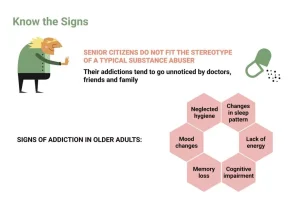
A break from alcohol can lead to improved memory and concentration, and a reduction in brain fog. According to a study published in the journal Consciousness and Cognition, even moderate alcohol consumption can have negative effects on cognitive functioning. When you cut out alcohol, you’re also cutting out empty calories that can lead to weight gain. Plus, your metabolism can how to take a break from drinking function more efficiently without alcohol slowing it down. A study published in the American Journal of Clinical Nutrition found that alcohol consumption can lead to an increase in overall calorie intake, contributing to weight gain. Check out this periodic table of calories in alcohol to get a better sense of how many added calories you’re actually consuming by drink type.
National Institute on Alcohol Abuse and Alcoholism (NIAAA)

“If you find that you are trying to stop repeatedly without success, getting professional help from a therapist or outpatient program may give you the best chance of wide-reaching recovery,” adds Mehta. This can be especially important if you experience withdrawal symptoms upon trying to quit, says Stewart. “It is also important to notice what happens to your emotions when you stop alcohol use. If you have been using alcohol to manage difficult or uncomfortable emotions or experiences, those emotions will intensify shortly after you quit using. In these cases, it is important to seek professional help to address and resolve those difficulties,” she adds. Just as you might think to yourself, “maybe I should get more sleep this week,” you can think, “maybe I should check in with myself about my alcohol consumption.” Here’s how to start.

Mindset shifts to move from self-sabotage to success
The new year in January holds the potential to shed old baggage and cultivate new habits. And often that includes new ways to take agency over our health. For example, the concept of having a dry month https://ecosoberhouse.com/article/how-to-naturally-reduce-alcohol-cravings/ (abstaining from alcohol during Dry January) has become more prevalent. The 30 Day Alcoholiday contains medical, psychological, and physiological information relating to alcohol and addiction.
Can cutting out alcohol bring about health benefits?
She has previously been awarded funding by Australian and state governments, NHMRC and other bodies for evaluation and research into drug prevention and treatment. She is a member of board of directors of Hello Sunday Morning. You can begin setting boundaries by creating a little distance from big drinkers in the initial phases of sobriety and also find others who are in the same boat as you, says Mehta. Exercise boosts serotonin and dopamine in the brain, and a quick shot of both will make the happy chemicals release, and you won’t want to drink. If you begin to experience any of these symptoms, please seek a physician’s care.
Quitting for Now
- Dependent drinkers may experience withdrawal symptoms when they suddenly stop drinking, which can be dangerous if not monitored.
- These goals are designed to prepare me to stop drinking for at least 30 days.
- Stress about money can become an issue in taking care of personal needs and appearance, as it might be spent on use in place of basic necessities.
- Sunnyside is the leading alcohol health platform focused on moderation and mindfulness, not sobriety.
- Cirrhosis of the liver (severe scarring of the liver) can occur over time in those who drink excessively.
After 30 days without alcohol, your brain and thought processes might become clearer, according to Larson. Alcohol is also linked to poor sleep quality, so you might feel more energized after a week without alcohol, she added. Taking a time-limited break runs counter to the traditional abstinence-only approach in the addiction field.
- It’s particularly dangerous in young people still forming important brain connections.
- It lowers your blood pressure, improves your heart rate, and lowers your stroke risk.
- Research has also shown that taking a month-long break from alcohol can be good for the liver.
In the study that looked at the effects of giving up alcohol for 30 days, 52 percent of participants reported having better energy. If you have been a frequent user of alcohol, you may need to have a physical and consult with a physician about the possibility of experiencing withdrawal symptoms while abstaining from alcohol. Symptoms can occur to different degrees based on history and prolongation of use. “Social self” is defined as the way one relates to others and the ability to feel comfortable with other people. Initially, and for sometime afterward, alcohol may seem to enhance certain experiences. People may seem more accepting or less judgmental, and you might feel you “fit in.” You may convince yourself that experiences are more enjoyable and conversation more relaxed.

Monitor your drinking
- The alcohol is just removed at the end to keep you hangover-free.
- A study published in the American Journal of Clinical Nutrition found that alcohol consumption can lead to an increase in overall calorie intake, contributing to weight gain.
- Keep in mind that going alcohol-free for a month will look different for moderate drinkers vs. heavy drinkers.
- For anyone concerned about heart health, Dasgupta recommended decreasing alcohol intake and increasing physical activity, which also raises good cholesterol.
- While light to moderate wine drinking has been linked to a lower risk of cardiovascular disease, heavy drinking has the opposite effect.
- Initially, and for sometime afterward, alcohol may seem to enhance certain experiences.
Deixar um comentário